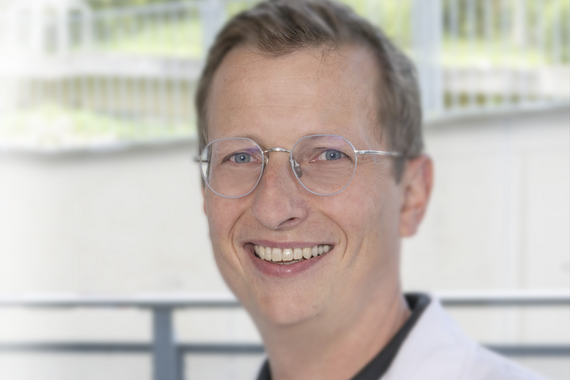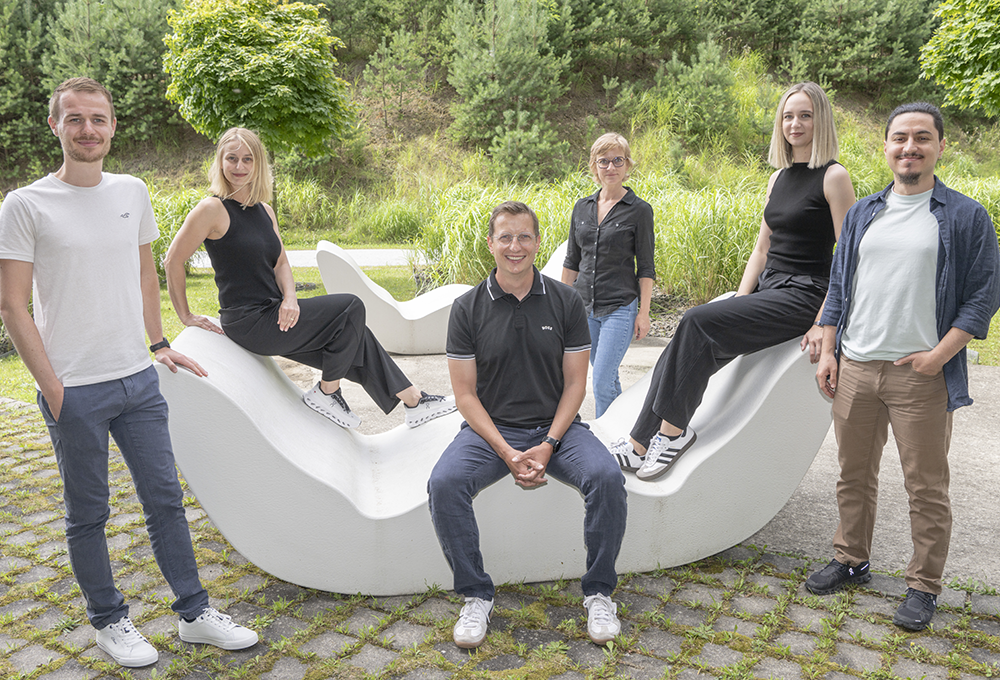- The University
- Studying
-
Research
- Profile
- Infrastructure
- Cooperations
- Services
-
Career
- Med Uni Graz as an Employer
- Educational Opportunities
- Work Environment
- Job openings
-
Diagnostics
- Patients
- Referring physicians
-
Health Topics
- Health Infrastructure
Research Team REINISCH
Research Focus: Clonal Hematopoiesis, Molecular Leukemogenesis, and Genome Engineering
PI: Andreas Reinisch
Focus: The research group led by Andreas Reinisch focuses on investigating genetic and molecular events that contribute to the development of clonal hematopoiesis and subsequently lead to the formation of myeloid leukemias. A central aspect of our work is the targeted introduction of genetic alterations (mutations) into normal hematopoietic stem and progenitor cells using CRISPR/Cas9 technology. The goal is to understand how specific genetic changes promote the development of leukemic stem cells, selectively favor their growth, and ultimately lead to the manifestation of leukemia.
In addition, we are dedicated to studying the contribution of clonal hematopoiesis to the development of atherosclerosis and cardiovascular diseases. Through the development and use of a new humanized mouse model that accurately replicates human hematopoiesis and atherosclerotic processes, we aim to better understand the underlying mechanisms.
Another major focus of our research is the study of the interaction between the bone marrow microenvironment, the so-called bone marrow niche, and both normal and malignant hematopoietic cells. We investigate how the bone marrow environment contributes to leukemogenesis and to what extent leukemia itself can alter its microenvironment.
To address these specific research questions, our group places great emphasis on the development and application of innovative methods. Among other things, we use humanized mouse models and customized gene-editing technologies for human primary tissue. Additionally, we employ a wide array of cutting-edge assays to evaluate the function and potential of hematopoietic stem and progenitor cells, aiming to better understand the underlying mechanisms of leukemogenesis and develop potential new therapeutic approaches.
A unique feature of our research, and an important translational aspect of our work, is the use and study of primary patient samples, made possible through close collaboration with the Leukemia Biobank. Through our strong network of national and international partners, as well as the utilization of the infrastructure at the Medical University of Graz, we contribute to translating preclinical findings into clinical research and improving treatment options for patients with hematological diseases.
Projects
Identifying the hematopoietic and leukemic stem cell niches
- Acute myeloid leukemia (AML) is a serious blood cancer that begins in the bone marrow and is sustained by leukemic stem cells (LSCs), which depend on their surrounding environment, known as the niche, for survival. Current treatments primarily target actively dividing leukemic cells but often fail to eliminate the quiescent LSCs, leading to relapses. In this project we aim to develop a new tool called “SynNotch” to identify the specific cells and molecules in the bone marrow niche that support LSCs. By understanding these critical interactions, we aim to develop strategies to target and eliminate LSCs, potentially improving AML treatment outcomes. Ultimately, the goal is to disrupt the LSC-niche relationship, which may be key to eradicating the disease.
- Duration: 2021-2024
- Funded by: FWF (Austria)
- Project partner: Krzysztof Szade, Jagiellonian University, Krakow, Poland
Engineered human stem cells for mutation-specific eradication of myelofibrosis
- Primary myelofibrosis (PMF) is a chronic blood cancer where bone marrow is eventually replaced by scar tissue, leading to impaired blood cell production. Many PMF patients bear mutations in their CALR gene, which drive abnormal cell growth. In this project we focus on engineering human hematopoietic stem cells to model CALR mutations and study their role in disease development. By doing so, we eventually aim to develop monoclonal antibody therapies that specifically target CALR-mutant cells. These targeted therapies could potentially eradicate the disease at its source, offering a more effective treatment.
- Duration: 2021-2024
- Funded by: Medical Research Future Fund, Australia
- Project partner: Daniel Thomas, University of Adelaide, Adelaide, Australia
Investigating the effect of JAK2V617F gene dosage on MPN phenotype by forward and reverse CRISPR/Cas9 genome engineering
- In this project we investigate how a single JAK2V617F mutation, commonly found in blood cancers like PV, ET, and MF, can lead to such different disease phenotypes. By using advanced CRISPR/Cas9 technology, we can study the effects of gene dosage in hematopoietic stem cells, both in vitro and in humanized animal models in vivo. We will introduce or remove the mutation in healthy and also patient-derived cells to observe functional alterations induced by the mutations.
- Duration: 2021-2024
- Funded by: Österreichische Gesellschaft für Hämatologie and Medizinsche Onkologie
Aberrant innate immune signaling in spliceosome-mutant myeloid neoplasms
- In this project we aim to uncover how spliceosome mutations in hematopoeitic stem cells affect their cell-intrinsic key innate immune signalling properties and therby contribute to the development blood cancer like myelodysplastic syndromes (MDS). We use advanced gene editing techniques to create specific mutations in human blood stem cells and study their effects on immune signaling. The study also aims to test potential new therapies that target the altered immune signaling in these mutated cells.
- Duration: 2024-2026
- Funded by: Gilead Sciences
Clonal dominance in splicing factor mutant myeloid malignancies
- This research project aims to investigate how splicing-factor mutations promote clonal dominance in mutant hematopoietic stem and progenitor cells. We will investigate how these mutations might give abnormal cells an advantage over healthy cells, leading to their dominance and the development of clonal hematopoiesis, myelodysplastic syndrom (MDS) and acute myeloid leukemia AML) . By understanding these processes, we hope to develop more effective treatments to prevent or reverse the clonal dominance of mutated cells in patients with blood disorders.
- Duration: 2024-2026
- Funded by: MEFO Graz




